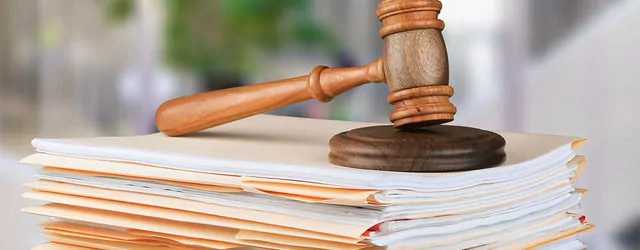Unfortunately ill health, age-related conditions such as dementia or even an accident can easily steal away our ability to make important decisions regarding finances, property, health and care. This can lead to a lot of stress – not to mention expense – for those left trying to sort it all out.
A Lasting Power of Attorney (LPA) is created to allow someone else the ability to look after your affairs if your mental capacity is lost. It isn't a nice thing to think about which is why most people will put it off for as long as they can.
We can help you to ensure that when the time comes;
- Bank accounts can still be accessed and important payments processed
- Decisions can be made on the sale of your property and/or other assets
- Decisions are made on your Health and Welfare
- An expensive and complicated Court of Protection order is avoided
If you have any queries about LPAs, please do not hesitate to contact a member of our expert team, who would be more than happy to discuss with you further.
Should you have a relative or friend who has lost mental capacity, but does not have a Lasting Power of Attorney in place, then you may be able to make an application to the Court of Protection.
There are two types of LPA, which cover different areas. It is usual for most people to apply for both at the same time, but you can apply for just one if you would prefer:

Lasting Power of Attorney Dispute – A legal battle to protect an Elderly Client’s wishes
A family conflict over LPAs led to lost inheritance and legal battles. Discover how our solicitors helped resolve the dispute and protect the client’s rights.

What is an LPA?
Kathryn Wheeldon explains what an LPA is, why they are useful and how to make one.

Coronavirus vaccine consent and mental capacity
The Coronavirus vaccine is being rolled out quickly and among the first groups of people to receive it are the elderly living in care homes with Dementia. These people may be unable to make the decision for themselves to have the vaccine and give the consent required.

Deputyship fee refunds scheme
You might be eligible for a refund if you were overcharged deputyship fees by the Office of the Public Guardian (OPG) for England and Wales. Refunds are being offered to those who were charged more than was necessary for certain deputyship fees charged for any period between 1 April 2008 and 31 March 2015.

Power of Attorney – The case for and against
Setting up a trusted family member or friend with a Lasting Power of Attorney (LPA) ensures that someone else is able to make important decisions for you when you’re no longer in a position to be able to make them for yourself. But this in itself is always going to be a key decision in your life, so it’s important to consider the benefits and risks before going ahead with giving another person the authority LPA unlocks.

Lasting Powers of Attorney
A Lasting Power of Attorney (often referred to as an “LPA”) is a legal document which appoints one or more people as your attorneys who can make decisions on your behalf. Once the LPA has been registered it can last for the rest of your life, even if you lose mental capacity.

New Deputy Report Forms to Improve Safeguards for At-risk Adults
The Office of the Public Guardian (OPG) has introduced new and improved forms to be used by deputies.

The True Cost of Divorce in Retirement
The financial effects of divorce last much longer than the initial cost of the break up.


